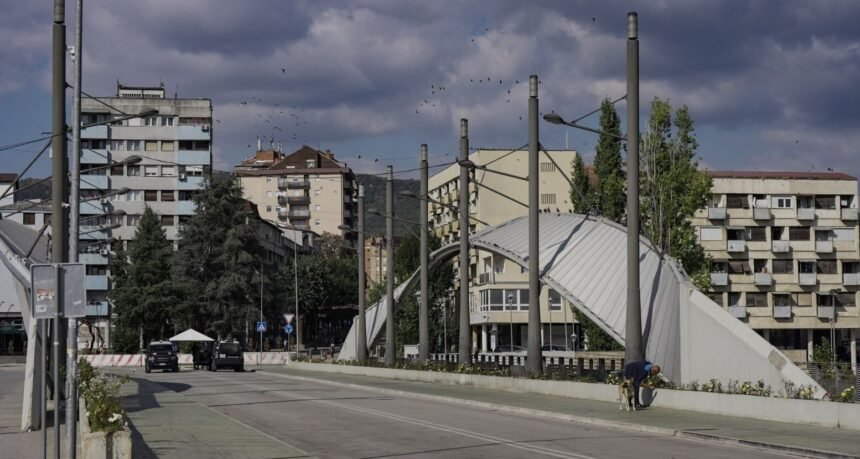Disinformation campaigns circulating on social media, in the media, and at local coffee tables are reportedly inflaming ethnic relations in Kosovo, particularly between Albanians and Serbs.
Ramush Ilazi, Director of Research at the Kosovar Center for Security Studies (QKSS), stated that these disinformation campaigns are deliberately spread to further inflame inter-ethnic tensions.
“We have campaigns aiming to create distrust—especially within the Serb community—towards public institutions in Kosovo and to create a perception that the situation in the north [of Kosovo] is one of continuous repression against the citizens there,” Ilazi said in an interview with Radio Free Europe.
To test this perception, QKSS conducted a study, which, in addition to surveys and analyses, involved gathering young Albanians and Serbs for discussions on disinformation campaigns. The findings showed that the majority of Kosovars, regardless of their ethnicity, believe that disinformation is impacting inter-ethnic relations. In fact, most of the participants acknowledged encountering such disinformation themselves.
Ilazi believes that these disinformation campaigns are more apparent when there are tensions in the northern part of Kosovo, which has a Serb majority, such as after last year’s attacks in Banjskë and the Ibër-Lepenc canal. He suggests that Russian media services, including RT and Sputnik in Serbia, play a significant role in spreading these disinformation narratives, despite sanctions imposed by the U.S. and EU.
“In Serbia, through these media outlets, extremely harmful and unconstructive narratives about Kosovo are spread, which damage inter-ethnic coexistence. They also aim to disrupt the normalization of relations between Kosovo and Serbia,” Ilazi stated.
Adea Beqaj, program manager at the National Democratic Institute (NDI) in Pristina, emphasized that the high presence of Kosovars on digital platforms makes society vulnerable to these disinformation campaigns. According to her, the lack of media literacy also plays a key role.
Beqaj suggests that institutions in Kosovo need to devise a strategy that equips citizens with “the skills to navigate an increasingly complex information environment, combat disinformation, and make well-informed decisions.”
“A key component of this effort should include integrating media literacy into the educational curriculum at all levels, starting from primary education,” she noted for Radio Free Europe.
The absence of media literacy in Kosovo’s educational curricula is seen as one of the factors leaving Kosovars susceptible to disinformation campaigns. Online media platforms are viewed as some of the main distributors of such disinformation.
However, the majority of Kosovars believe they can identify disinformation when they encounter it.
For Ilazi, the issue remains the language barrier between the Albanian and Serb communities. He argues that the lack of bilingual media in Kosovo means that news often lacks the necessary context, leading to incomplete or inaccurate reports.
“We don’t have professional Albanian-language media in Kosovo with Serbian community journalists, nor vice versa. Thus, often, reports about the north lack the context needed to address information that may not be entirely accurate,” Ilazi explained.
Since members of different communities consume different media content due to language barriers, many events in Kosovo are perceived differently within ethnic communities. Ilazi believes that fighting disinformation would make it easier to normalize relations between Kosovo and Serbia.
“As long as tensions exist between Kosovo and Serbia, society will remain vulnerable to disinformation campaigns. Every time we have tensions, disinformation campaigns grow significantly, aiming to create a perception of fear,” Ilazi said.
Similar issues with disinformation are being faced by societies in neighboring countries in the Western Balkans.
“Cultural and religious narratives that are deeply rooted are often manipulated and used as tools to sow division and mistrust. By exploiting the social divides and historical complexity of the region, disinformation continues to undermine efforts toward reconciliation and stability in the Western Balkans,” said Beqaj from NDI.
These disinformation problems in the Western Balkans have a negative impact on the democracies in these countries as they pursue EU integration.
“The prerequisite for the proper functioning of democracy is for citizens to be correctly and accurately informed, to make informed decisions, and to be able to hold the government accountable,” Beqaj concluded.







